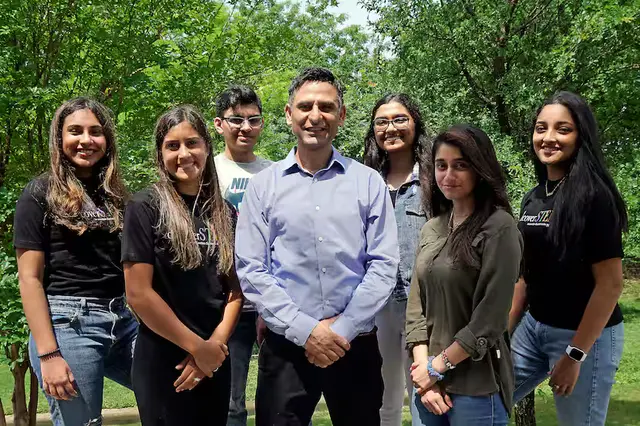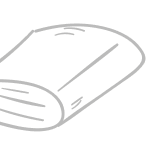In his DiscoverSTEM Academy in Plano, students are encouraged to follow a five-step program of “think, analyze, ideate, create and innovate” patentable solutions to real-world problems. Mentoring young inventors to patent their innovations is the primary goal of India-born Faizan, who came to the United States in 2013 and was later awarded a coveted “Einstein” visa, for those acclaimed in their fields, with NASA and Pentagon backing
Last year, Faizan resigned as head of engineering services (USA & Canada) at Capgemini, a multibillion-dollar, multinational, France-based company, to focus full-time on developing the academy, which he started four years ago. It has produced almost 200 young inventors ages 10 to 18.
The decision to focus on youth came from his frustrations as a judge evaluating students’ submissions to prestigious competitions such as the annual R&D 100 Awards (the equivalent of the Oscars) and the Conrad Challenge held at the Kennedy Space Center in Florida each year.
“Many times, I could see the young kids had some very bright and promising ideas at these competitions, but they didn’t know how to proceed with their idea, to convert it into an innovation or invention,” Faizan says. “So, they drop the idea.”
This conviction was reinforced last February when he spoke at an event in Frisco ISD where he asked around 400 students and parents if they had ever thought of inventing something. Practically everyone’s hands went up, Faizan says. But when asked if they knew how to invent? “Almost all the hands went down.”
Launchpad for success
Faizan’s mission to reverse the status quo has garnered him a local reputation as the “space whisperer,” and 25 of his students have won NASA innovation competitions. More than 50 students have patents pending after winning international competitions. Some of his alumni have gone on to Harvard, Stanford, Duke and MIT, with cumulative scholarships totaling $3.5 million.
“The program brings to life the true scientific process,” says Hasan, whose love of astronomy was inspired by meeting Yuri Gagarin, the first man in space, as a child. “DiscoverSTEM encourages students to make their own discoveries. By working together in groups, they feed off each other’s energies as each has his or her own ‘Eureka’ moment. … I will add that I was particularly impressed at the number of young girls in the DiscoverSTEM program.”
Engineer Nusrat Husain Khan of Irving enrolled his daughter Marium in the mentorship program when she was 18 and says it played a central role in her academic success. She received a full-ride scholarship worth over $300,000 to study biology at Duke University. Now 22, the younger Khan says finishing first in her team’s category at the international Conrad Challenge awards in 2016 certainly boosted her application.
The cost for the five levels of programs at DiscoverSTEM ranges from $1,000 to $5,000, and Faizan is committed to increasing access with scholarships for low-income students and former or active-duty military. This policy was adopted after an inspiring chance meeting with disabled veteran Jeanette Goodrich at the Dallas STEM Expo last January.
The ex-Air Force officer says this was a lifeline for her and her 13-year-old daughter, Kayla. “I was going through a difficult time, and my disability was my primary source of income. But Mr. Faizan just met us and was so impressed with Kayla and so respectful of my service he actually said, ‘Your daughter is everyone’s daughter.’ I was just blown away by that.”
Kayla, a student at DeWitt Perry Middle School in Carrollton, is keeping mum about her innovation while her patent is being processed. She appreciates the DiscoverSTEM method. “In school we just memorize things, but here they really make us understand concepts and promote creative thinking, and we learn to work together as a team. These are life experiences you can’t get anywhere else.”
A valuable skill
Faizan says the central focus of DiscoverSTEM is to resurrect logical thinking, a skill he believes is dwindling due to instant-gratification technology that provides answers at the touch of a button.
“I remember when I was a middle school kid, growing up in India, I used to live next to an airport,” he recalls. “This was India in the ’90s, with no internet access. Every time I see a plane take off and land, I used to sit and think for hours as to how does a plane fly? Today, if a child is struck with the same curiosity, she won’t even think for a second about this problem. What will they do? Ask Google or watch YouTube.”









